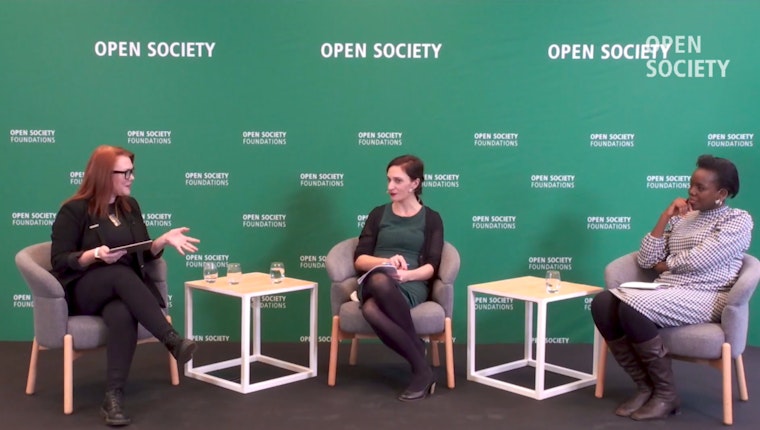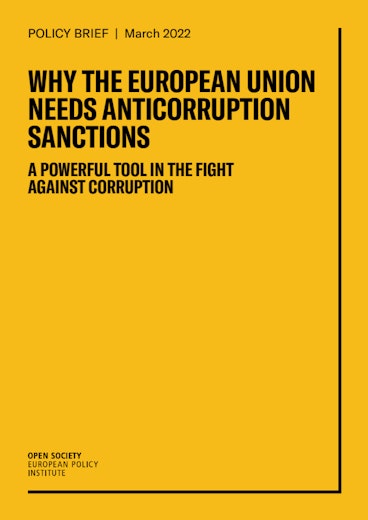
The use of sanctions as an instrument of foreign policy has become prevalent against a backdrop of regressing democratic, rule of law, and human rights standards, increased authoritarianism, and attempts to undermine rules-based international order.
Using sanctions to tackle corruption is a relatively novel and promising approach to fighting corruption that has not been universally adopted. In the U.S., legislation authorizing corruption sanctions, the Global Magnitsky Act, has been in place for over five years. The EU, however, which has taken a leading role in utilizing sanctions to protect human rights, respond to violations of international law, and to preserve peace and security, currently lacks the legislative framework to sanction kleptocrats and acts of serious corruption.
In this context, there is a need for consensus to develop around setting common goals for effectiveness, and for measuring how sanctions actually effect change. This expert panel takes stock of the impact of corruption sanctions to date, presenting specific case studies to identify lessons that current experience may hold for the EU.
Speakers
-
Carl Dolan
Speaker (opening remarks)
Until March 2023, Carl Dolan was the interim director of Policy and Outreach with Open Society—Europe and Central Asia.
-
-
Stephanie Muchai
Speaker
Stephanie Muchai is program director for Governance and Anticorruption with the International Lawyers Project.
-
Tinatin Tsertsvadze
Speaker
Tinatin Tsertsvadze is a senior policy analyst with Open Society—Europe and Central Asia.
-
Sandra De Waele
Speaker
Sandra De Waele is head of division for Sanctions for the European External Action Service.
-
Jennifer Baker
Moderator
Jennifer Baker is a Brussels-based journalist specializing in EU tech policy.
Read more
publication
Why the European Union Needs Anticorruption Sanctions

If the EU wants to be a global player in the fight against corruption, it must adopt stand-alone anticorruption sanctions, enabling it to work with its allies to deny kleptocrats’ access to western financial systems.
Rethinking the EU
In an Age of Crisis, an Opportunity to Remake the EU

From climate change to rising authoritarianism, Europe is facing a range of crises that threaten the way we live. The EU must seize the opportunity to reshape how it works and rethink what role it plays in a changing world.
Corporate Responsibility
Q&A: Why (Some) Investors Want More Regulation

As the EU works on rules to protect worker rights and the planet from corporate harm, Open Society’s Jon Jacoby spoke to Anita Dorett, of the Investor Alliance for Human Rights, about how investors are pushing for change.